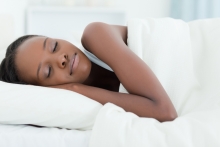You may have noticed that women are more prone to sleep disturbances than men. They are, for instance, up to twice as likely to suffer from insomnia than men. Could there be a link between the body clock that regulates sleep and being a female or a male? Yes, according to an original study conducted by Dr. Diane B. Boivin of McGill University’s Department of Psychiatry and the Douglas Mental Health University Institute.

Category:
Published on: 12 Sep 2016

Study reveals the impact of night work
You cross paths with him at the break of dawn in the corridors of the Metro. He looks bleary-eyed and pallid. This worker’s night shift just ended. His body clocks are out of sync with one another, and, imperceptibly, they’re also out of sync with his environment. In the long run, this night owl could be at greater risk of developing cardiovascular, autoimmune diseases or certain types of cancer.
Published on: 14 Jun 2016
